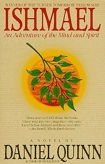innocent beginnings


advanced tools 1,760,000 years ago
One hallmark of Homo erectus, a forerunner of modern humans, was his stone tools, an advanced technology reflecting a good deal of forethought and dexterity. Up to now, however, scientists have been unable to pin a firm date on the earliest known evidence of his stone tool-making. A new geological study, being reported Thursday in the journal Nature, showed that tools from a site near Lake Turkana in Kenya were made about 1.76 million years ago, the earliest of their ilk found so far. Previous dates were estimates ranging from 1.4 million to 1.6 million years ago. Although no erectus fossils were found with the Turkana tools, a skull of that species was excavated last year in the same sediment level across the lake. This suggests that Homo erectus was responsible for these particular tools, which were made with what scientists refer to as Acheulean technology. The term connotes the type of oval and pear-shaped hand axes and other implements that were a specialty of early humans
New York Times, August 2011
by John N. Wilford
Ishmael speaks
“The premise of the Takers' story is 'The world belongs to man.' ...The premise of the Leavers' story is 'Man belongs to the world.'"
"For three million years, man belonged to the world and because he belonged to the world, he grew and developed and became brighter and more dexterous until one day, he was so bright and so dexterous that we had to call him Homo sapiens sapiens -- which means he was us."
"The Leavers' story is 'the gods made man for the world, the same way they made salmon and sparrows for the world. This seems to have worked well so far so we can take it easy and leave the running of the world to the gods.”
Daniel Quinn, Ishmael
earlier and earlier
As you can well imagine, the further back we go, the less likely it is that we will unearth some artifact, or some other evidence that has endured. These finds, which include the bones of our ancestors, bits of what they ate, what they build or made, or even footprints, are all that we have as clues to how early humans lived. However, over the last decade that I’ve been watching the science news, all sorts of assumptions regarding when things first happened have been pushed farther and farther back as new evidence comes up. Thus, in that sense, the history of our ancestors has become longer and longer.
The link is to a Wikipedia summary of Ishmael from which the two quotes are copied. If you do have a chance to read the actual book, I recommend
(in the context of this course) The Great Forgetting, p 239-257.
“takers” civilized?
“Takers as people often referred to as "civilized." Particularly, the culture born in an Agricultural Revolution that began about 10,000 years ago in the Near East; this is the culture of Ishmael's pupil and, presumably, the reader.
-
■Leavers as people of all other cultures; often derogatorily referred to by Takers as "primitive."
-
■A story as an interrelation between the gods, man, and the earth, with a beginning, middle, and end.
-
■To enact is to strive to make a story come true.
-
■A culture is a people who are enacting a story.”
-
Daniel Quinn, Ishmael
flour 20,000 years ago
New research suggests that our ancestors may have been more skillful in the kitchen than we thought. A team of Italian scientists has found what may be the oldest direct evidence of humans grinding plants into flour, suggesting that grains were on the menu 20,000 years before farming became the norm.
The idea of "man the hunter" dominates popular preconceptions of early humans. But that's grossly oversimplified, says lead author Anna Revedin of the Italian Institute of Prehistory and Early History in Florence. Although meat was a crucial part of the early human diet, she says, plants were necessary fare as well.
Plant remains don't last as long as bones, however, and even though some studies have found evidence of potential grinding tools in prehistoric sites, the stones may have been used just to crush red ochre for cave or face painting. That's why the new find is so important, says Revedin. Her team has discovered ancient starch grains on grinding tools buried at three prehistoric settlements in the valleys and floodplains of Italy, Russia, and Turkey.
ScienceNOW Daily News
by Kristen Minogue, October 2010
fire 1,000,000 years ago
Scientists have uncovered the first archeological evidence that Homo erectus, an ancestor of modern humans, used fire.
Traces of ash and burnt bone about a million years old were discovered in Wonderwerk Cave in South Africa by an international team led by researchers at the University of Toronto and Hebrew University, reported a paper to be published this week in the Proceedings of the National Academy of Sciences. The study described the ability to control fire as "a crucial turning point in human evolution."
CBC News by Emily Chung, Apr. 2012
cooperative versus political living
We consider that we human beings are cooperative, not political animals, and we think so because cooperation is a central feature of the human manner of living. According to Frans de Waal and other observers, chimpanzees cooperate in aggression. Of course, operational mutual trust is basic for doing things together in aggression, and cooperation in aggression lasts as long as operational mutual trust lasts. But when mutual trust is not the fundamental mood that guides coexistence, cooperation is necessarily transitory, and doing things together becomes a feature of the political dynamics of the relations founded on circumstantial alliances, constituting a background of hypocrisy, as happens with chimpanzees.
We humans, of course, also participate in political alliances, but, we claim, not as a feature proper to the manner of living that made us humans. We think that political alliances have become a central feature of our cultural living in our European tradition only during the last 10,000 years since the origin of patriarchy. Indeed, we humans make political alliances fully aware that they are essentially transitory and not trustful because they are manipulative of the interpersonal relations as they occur outside love. That is, we know as we make them that coordinated actions based on political alliances, or any alliances based on coincidence of interests, are in themselves transitory and not to be trusted precisely because they are not based on love. Alliances do not have the permanence of a mutual acceptance rooted in a social manner of living, and they are not social actions, they are political actions. Thus, although we humans make political alliances, political alliances are not our fundamental form of coexistence. In us cooperation as a manner of living is essentially a daily life feature of a coexistence constituted on a basis of permanent mutual trust that stands on the conservation of love as the fundament for social living.
Maturana and Verdenzöller, Origin of Humanness
intelligence and cooperation
In our present patriarchal culture one usually speaks of intelligence in technical and professional domains as consisting of the ability to solve problems. Similarly, one speaks of cooperation as if it consisted of synergistic activities, regardless of the emotions involved. We, the authors, think differently. We think that if we attend to how we use the word intelligence in daily non-professional life, we see that we use it to refer to situations or circumstances in which a human or a non-human animal participates in a domain of consensual behaviors, either in one already established, or in the constitution of a new one. Thus, for example, if you take a kitten to your home, and you see that she easily learns where to deposit her feces, where you give her food, and how to sleep with you, you would probably say that she is very intelligent. The same would be true with a person.
With the word “cooperation” there is also a difference in its use in daily life and in more technical circumstances. In daily life we use the word “cooperation” in a manner that implies the emotioning of mutual acceptance and pleasure in doing things together, and not merely a coincidence of activity for increased effectiveness. It is in the way we use the words “intelligence” and “cooperation” in daily life, that we use these words in the present essay.
As we have said earlier, both political and cooperative living entail consensuality, but they do so differently. In a daily life lived as a political coexistence there is a restriction of attention to the domain of the struggle for domination and submission. This restriction of attention to competition in any circumstance constitutes a systemic dynamics that channels the possibility for the evolutionary expansion of intelligence into a narrow path. Cooperative coexistence, on the contrary, expands the attention of those that live together in it to all possible domains of coexistence in self respect and mutual acceptance. Thus, cooperation constitutes a systemic daily dynamics that is the foundation for a systemic evolutionary trend of expansion and conservation of intelligence. Let us not forget that emotions are lived in their realization and constitute systemic dynamics for their conservation.
Maturana and Verden-Zöller, Origin of Humanness


Jussi Mononen, fotopedia commons


wikimedia commons

John Sullivan, public domain photo
photo with ScienceNOW article, credit to
Instituto Italiano de Prehistoria e Protostoria


collage: background National geographic,
foreground News Junkie
human being
excluding the wolf


